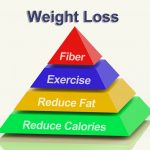In today’s society, there is a constant pressure to look a certain way and achieve a certain body type. This has led to the rise of fad diets, which promise quick and easy weight loss solutions. However, these diets often come with dangerous consequences and do not promote sustainable health. It is important to focus on sustainable health, which involves making lifestyle changes that promote long-term health and wellness.
What are Fad Diets?
 Fad diets are diets that promise quick weight loss results through extreme and often restrictive eating habits. These diets often eliminate entire food groups or promote the consumption of one specific food or drink. Examples of popular fad diets include the Atkins diet, the juice cleanse diet, and the cabbage soup diet.
Fad diets are diets that promise quick weight loss results through extreme and often restrictive eating habits. These diets often eliminate entire food groups or promote the consumption of one specific food or drink. Examples of popular fad diets include the Atkins diet, the juice cleanse diet, and the cabbage soup diet.
The Dangers of Fad Diets
While fad diets may lead to short-term weight loss, they can have negative consequences on long-term health. These diets often lead to nutrient deficiencies and imbalances, as they eliminate important food groups that provide essential vitamins and minerals. Additionally, fad diets can have a negative impact on mental health, as they can lead to feelings of guilt and shame when individuals are unable to stick to the strict guidelines.
The Benefits of Sustainable Health
Sustainable health involves making lifestyle changes that promote long-term health and wellness. This includes incorporating a balanced and varied diet, regular exercise, and mindfulness practices. The benefits of sustainable health include improved energy and mood, reduced risk of chronic diseases such as heart disease and diabetes, and overall improved quality of life.
How to Achieve Sustainable Health
Achieving sustainable health involves setting realistic goals, creating a balanced and varied diet that includes all food groups in moderation, and incorporating regular exercise into your routine. It is important to make gradual changes rather than drastic ones in order to create lasting habits.
Eating for Sustainable Health
Eating for sustainable health involves consuming whole foods that are minimally processed and provide essential vitamins and minerals. It is important to balance macronutrients such as carbohydrates, protein, and healthy fats in order to provide the body with the energy it needs. Mindful eating practices such as listening to hunger cues and practicing gratitude for food can also promote sustainable health.
Exercise for Sustainable Health
Regular exercise is an important component of sustainable health. This includes both cardiovascular exercise and strength training, which can improve overall fitness and reduce the risk of chronic diseases. It is important to find activities that you enjoy in order to maintain consistency and make exercise a sustainable habit.
The Benefits of Ditching Fad Diets
Ditching fad diets can lead to improved overall health and wellness. By focusing on sustainable health practices, individuals can improve their relationship with food, achieve sustainable weight loss and maintenance, and promote long-term health.
In conclusion, it is important to prioritize sustainable health over quick-fix fad diets. By making gradual lifestyle changes that promote long-term health and wellness, individuals can achieve their goals while also improving their overall quality of life.








